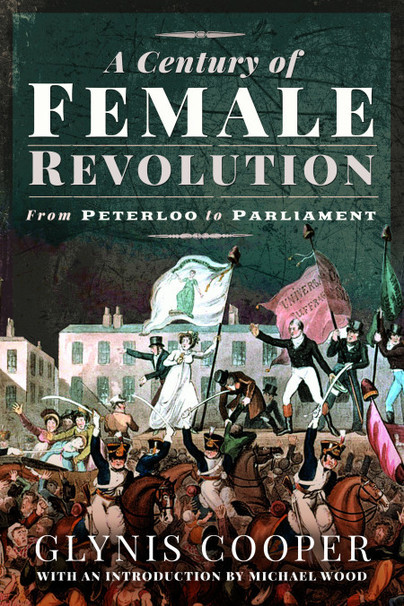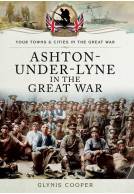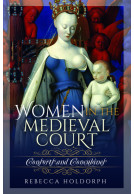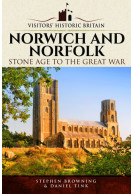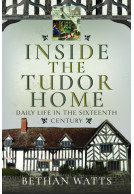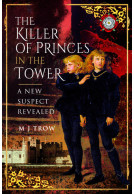A Century of Female Revolution (ePub)
From Peterloo to Parliament
Imprint: Pen & Sword History
File Size: 23.0 MB (.epub)
Pages: 176
ISBN: 9781526739223
Published: 4th November 2020
History Hit!
An article written by the author for Dan Snow's History Hit: 'How 19th Century Women Carved a Path Toward Female Suffrage.'
| Other formats available | Price |
|---|---|
| A Century of Female Revolution Paperback Add to Basket | £14.99 |
The 100 years from 1819-1919 were the most remarkable in the history of womankind. In 1819 women had no rights, no status, no options, no votes. Females were denied higher and further education. Job opportunities were menial and few. Legally, women were not even considered to be ‘persons'. By 1919 they had achieved full legal rights and status; the doors of education, equality and professions had been thrown open to them; they had proved that they could do any job a man could do; and most importantly they had achieved universal suffrage.
Appalling conditions suffered by those living and working in the textile industries of the North-West provided the impetus to demand democratic political reforms and a fair day’s pay for a fair day’s work. Women were not allowed to join official associations so they formed their own groups, seeing the main objective as achieving results for their menfolk, which would make life better for women in turn. Then they could concentrate on fighting for their own rights.
The Peterloo Massacre in August 1819 was a day of bloody carnage during which females were singled out, hunted down and killed or injured to ‘teach them a lesson’. It did teach them a lesson, but not the one their attackers had intended. It gained them status and sympathy in the eyes of many and further encouraged them to fight for themselves as well as their men.
Women became involved in reform groups, Chartism, trade unions, politics, education, career opportunities and the right to vote, although they encountered fierce hostility and opposition from both men and their own sex. Perseverance paid off. Women finally gained their equal opportunities, winning the right to vote as a reward for their major contribution to the Great War.
A thorough, well-researched take on a part of history that should be more widely known. One may take for granted what is available to women now - we owe so much to those who fought for a more just society.
NetGalley, jennifer b
This is an ambitious book. It attempts to foreground campaigning women activists, both working-class and middle-class, in the narrative about the struggle for workers’ and women’s rights in the long nineteenth century: a story which is usually seen through a masculine lens.
Alison Ronan for the North-West Labour History Journal no.49
It is ambitious, because the story necessarily needs to cover a great deal of political and legal ground. It is ambitious because it tries, with some success, to highlight, detail and describe the role of individual women and their commitment and passion for the ‘Cause'... the book offers the general reader a useful summary of the complex history of the struggle for the Vote. It is written with a justified sense of outrage at the persistence of institutionalised sexism, recognising the continuing injustices and prejudices of the British class system, demeaning and patronising the working class, and women in particular. Women still have a long way to go politically, but this book offers a good, if basic, grounding in recent feminist history.
This was a thoroughly good book to read, and one I have really enjoyed. As someone who is keen on women’s history and the 19th century, it has enjoyable and informative book. I love reading all about the strides made by women from the stuck at home wife to a point where they could seek education, own property and the start of being able to get away from troublesome husbands. I knew about various parts of the book such as the Peterloo Massacre, and the Chartist Movement and of course everyone should know about the Suffragette Movement. This book was well written and equally paced if that makes sense considering the size of the book. I think I might have read about this book and its content in a history magazine not long ago. This book is ideal for any reader but especially for any university students that plan to look at the history of women. It wouldn’t surprise me to see this book on a few university courses’ book lists.
UK Historian
5 stars
Read the full review here
Review by Ruth A Symes
WDYTYA? Magazine, February 2021
... a refreshingly accessible history.
Having read a lot about US women’s suffrage recently, I was intrigued to read about the fight in Britain, especially as it factors into the backdrop of many of my favorite historical novels. I knew a bit about Peterloo prior, but I didn’t know how it figured in the women’s movement, and I was intrigued to learn how things changed between 1819 and 1919 as people fought for change.
NetGalley, Courtney Tonokawa
A Century of Female Revolution gives an insight into the effects of Peterloo and the long campaign for women's right to vote in Britain. The focus on class was particularly interesting and Cooper covered a wide variety of topics besides universal suffrage, including education, living conditions, trade unions and social reform. She also focused in on the lives of particular activists, like Josephine Butler... Overall, it was a great overview of female revolution in all areas of life, from Peterloo in 1819 to the securing of universal suffrage.
NetGalley, Ella Blake
August 1819 saw the Peterloo Massacre occur when a large crowd of mainly working class men, women, and children gathered in an open space in Manchester, UK. The attendees were there to hear speakers talk about the issues of low wages and high food prices, exacerbated by the Corn Laws, which meant that many of the working class and poor faced near starvation. Those in charge of Manchester though had different ideas and they sent in the Yeomanry who set about the protestors with extreme violence. Some attendees were killed and many were injured, and women were disproportionally targeted.
NetGalley, Gayle Noble
This book looks at Peterloo and the fallout from it which helped pave the way for the setting up of trade unions, better working conditions, fairer pay, and adult suffrage. Initially, these tended to mainly benefit men only, and women often had to set up their own unions and pressure groups. (Not to say that there weren't men who believed that women should be treated as individuals and not the property of their father or husband - there were some like John Stuart Mill). I thought this was a really interesting read. It is written in a very accessible writing style, and I feel that I learned a lot.
The author really dug into the prevailing class distinctions and how these combined with women not being viewed as people in the same way that men were viewed as people to make things doubly hard for women. For working class women this meant that not only did they work 12 hour shifts in factories or domestic service, they then returned home and started a second equally hard shift looking after the home and family. It seems absolutely ludicrous now to think that anyone could argue that women were not people and yet it was a common way of thinking - some aspects of which unfortunately permeates down to today.
In the same way, the view of the ruling class who thought of the working class and the poor as being destitute due to their own moral failings and being uneducated, rather than look to the way Victorian society was set up to keep the pecking order intact, is still seen today. One only has to think of the way benefit claimants are viewed by some sections of society today to see this. I think this book should be widely read so people can see just where the fights for the rights of women and the rights of the poorest in our society came from, how far we have come, and what still needs to be done.
A well-researched, well-presented insight into the politics and societal attitudes leading up to British women winning the right to vote (in 1918 providing they were over thirty years old; in 1928 once they were twenty-one years of age). I learned a great deal from this book, and am surprised that so much of its content isn't taught in schools — I didn't know a single thing about Peterloo until I researched it for an essay during my Bachelor's degree! For a teenager, or somebody looking to expand their knowledge on a neglected area of history, A Century of Female Revolution is a worthy read, ending on this fitting, sadly true note:
NetGalley, Sarah Curzon
"Although the situation of women is rather different in 2019, the repressions, cruelties, and taunts of 1819 are being repeated with the same intentions, proving that true female emancipation has yet to come. Nineteenth-century attitudes towards women are still there, still simmering, just below the surface."
Rating: 5 out of 5 stars
NetGalley, Victoria Caswell
History and the history of women is a really interesting topic to me, and this certainly gave me the depth and interest. A book that centres on the first wave of feminism, we see the strength of women grow throughout this century and it makes for such incredible reading - and Cooper does a great job delivering the history in an easy to read and understandable way throughout this book.
I really appreciated seeing the different local societies and the importance of grassroots activism when often in books around suffrage we rarely get to see alongside of course the prolific campaigners who tended to be London-centric - being able to see that women no matter where they were were pushing for change I think is important. Class was a major factor in here, and it shows in this book for me, as I feel all classes are represented in this book.
A great insight into the politics and social movements of the time, this book covers a range of perspectives that really enhanced my knowledge and if you’re interested in British Women’s Suffrage, I feel like this might be a book to begin with as it gives you a good foundation of knowledge about the time - and gives you plenty of sources to go and find to go deeper.
Rating: 5 out of 5 stars
NetGalley, Louise Gray
I thought I was pretty knowledgeable in this space but this book taught me a lot. Essential reading for anyone interested in the history of suffrage and the experience of being a woman during a period of great change. I always like it when historians balance expertise with accessibility and this book is a product of meticulous research and a commitment to clarity in writing.
About Glynis Cooper
Glynis Cooper's family has its roots in the industrial millscapes of Manchester. She was born in Stockport, but she grew up near Bury St Edmunds and subsequently spent ten years living and working in Cambridge before returning to Manchester. Her parents were writers who inspired her enthusiasm for the written word. Glynis, who loves islands and the open countryside, trained in the dual disciplines of librarianship and archaeology. She enjoys reading, researching and writing local histories, travelling and playing chess.







